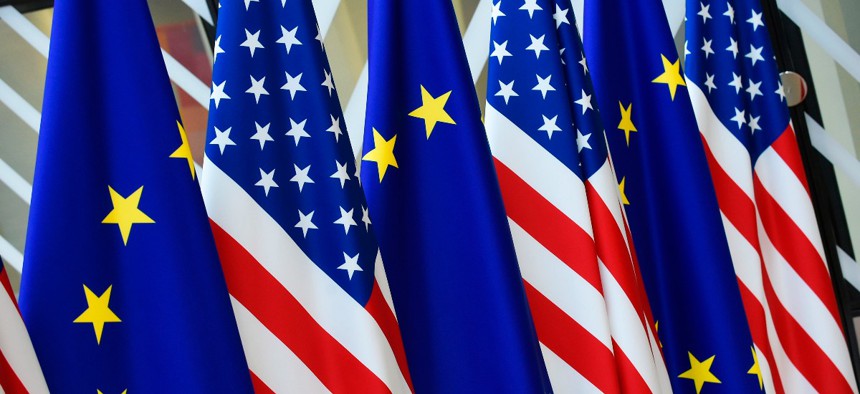New US-EU Data Privacy Framework Focuses On Limiting U.S. Surveillance

JOHN THYS/AFP via Getty Images
Fortifying European citizens’ data and privacy rights are central to the updated U.S.-EU Data Privacy Framework.
President Joe Biden unveiled a new executive order today that implements the data privacy framework between the U.S. and European Union, focusing on facilitating transatlantic data flows to benefit international commerce as well as fortifying civil rights protections.
Called “Enhancing Safeguards for United States Signals Intelligence Activities,” the executive order will marry elements of the EU’s data privacy laws while continuing the free flow of data for commercial purposes. Notably, the order strengthens protections for European citizens from illegitimate U.S. surveillance.
“The EU-U.S. data privacy framework includes robust commitment to strengthen the privacy and civil liberties safeguards for signals intelligence, which will ensure the privacy of EU personal data,” a senior administration official told press on Monday.
The framework also allows EU citizens to take legal action if they believe they have been unlawfully targeted by U.S. intelligence operations. The spokesperson said that this procedure includes two separate review processes, one within the Office of the Director of National intelligence and the other from an independent review court.
This clause upholds the more stringent data privacy protections that the EU has for its citizens’ personal data, even if it is being transferred to the U.S., which does not have a comparable national data protection law.
“The EU-U.S. data privacy framework will…enable a continuous flow of data that underpins more than a trillion dollars in cross border trade and investment every year, and especially will benefit small and medium sized enterprises, which make up 70% of the companies which will participate in privacy shield following the issuance of executive order,” the officials stated.
Officials also told press that the executive order took roughly a year in negotiations, and focused on ensuring U.S. intelligence collection activities are properly warranted and allowing individuals who believe they have been victims of unlawful surveillance have legal redress and recourse.
The new safeguards included in the transatlantic framework will clarify when signals intelligence gathering is appropriate, and reorganize how public intelligence organizations conduct operations.
The White House announced the joint framework back in March in response to privacy concerns raised by the EU Court of Justice. It builds upon Privacy Shield, a similar initiative that crafted new legal parameters for commercial data to flow between the U.S. and European countries.
NEXT STORY: State Department Names DOD Official as New CIO






